“17% women in tech is not enough”
Technology should be for everyone, but it has to be built by everyone to be for everyone. At Raspberry Pi, we work to empower everyone to become a tech creator and shape our collective digital future, and we hope that our work will help to increase the tech sector’s diversity.
Today, part of our team is attending WeAreTheCity’s WeAreTechWomen conference to spread the word about our free programming courses and encourage more women to share their digital skills with the next generation.
I asked Carrie Anne Philbin, our Director of Educator Support, and Vanessa Vallely OBE, Managing Director at WeAreTheCity, about their thoughts on how we can make the tech sector more diverse, and what part role models, education, and professional development play in this.
- Carrie Anne Philbin
- Vanessa Vallely OBE
Vanessa, WeAreTheCity helps organisations foster a strong female workforce, and provides opportunities for women to network and develop their skills. Why do you think it’s important for women and people from minority backgrounds to support each other in the professional world?
Vanessa Vallely: I believe it is important for everyone to support each other. It is important that we work as a collective and collaborate, as at the end of the day we are all trying to achieve the same goal. 17% women in tech [in the UK] is not enough.
“We want more women in tech, and we want them to represent all aspects of society.” – Vanessa Vallely OBE
We cannot be what we cannot see, therefore asking women who are already working in tech to stand up and own their role model status is a great start.
What can individuals do to address the lack of diversity in the tech sector?
Carrie Anne Philbin: Firstly, let’s recognise that we need the tech sector to be more representative of the population of the world. It’s problematic to have a small subsection of society be the controllers of a growing digital world.
Then, we need to be the change we want to see in the industry. Let’s try different avenues and then let’s be open about our challenges and successes.
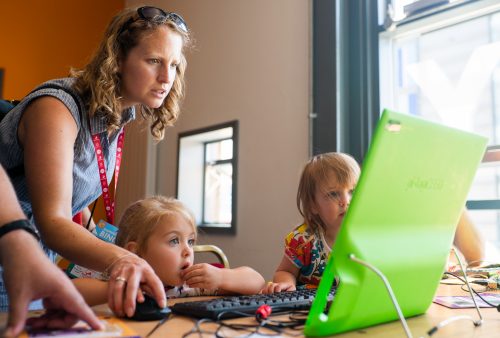
VV: I believe every woman in the tech sector is a role model to future generations. There are a number of things individuals can do, for example go back to their schools and tell their tech stories, or contribute/write blogs. This doesn’t just raise their profile, it puts their story out there for others to aspire to. I think this is really important, especially if the individual is from a background where role models are less visible. There are lots of different organisations and networks that facilitate individuals getting involved in their school or early career initiatives which has made it easier to get involved and give back.
CAP: As a woman in the computing field, I think it is important that I hold the door open for other women coming through in my wake, and that I highlight where I can, great work by others.
Ever since I realised that my skills and knowledge in computing were useful and allowed me to be creative in a whole new way, I’ve championed computer science as a subject that everyone should experience. Once you’ve created your first computer program or built your first network, you’ll never want to stop.
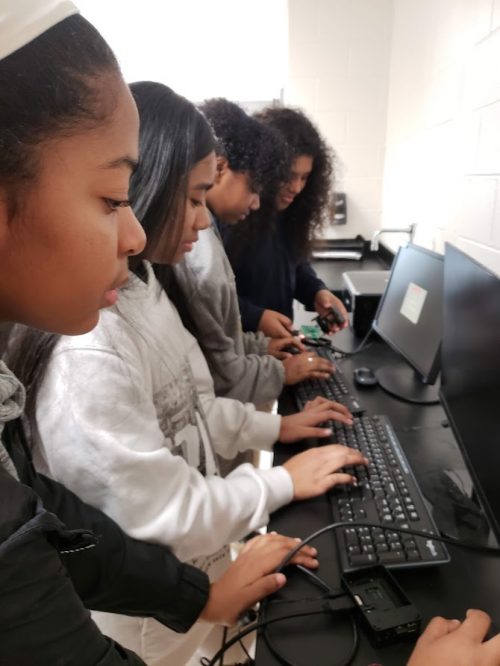
Carrie Anne, how does your coding session at WATC’s WeAreTechWomen conference today tie into this?
CAP: At the Raspberry Pi Foundation, I spend a lot of time thinking about how to teach computing well, and about how young people can have great learning experiences so they can become the makers and creators of tomorrow.
“Technology is not a mystery, nor is it hard to learn. I want to dispel this myth for everyone regardless of gender, ethnicity, or economic status.” – Carrie Anne Philbin
During my session at WeAreTechWomen, I hope to support attendees to write their first creative Python program, based on a project I wrote for Code Club to create a virtual pet. It is my hope that the session will be the spark of inspiration that gets more women and men from diverse backgrounds excited about being creators of technology.
You’ve built a career in tech education as a teacher, YouTuber, and Director at Raspberry Pi. How can beginners get comfortable creating with tech?
CAP: There isn’t anything magical about technology, and once you know this, you can start to explore with confidence, much like our ancestors when they learned that the earth was round and not flat.
“Phrases like ‘I’m not good with technology’ or ‘It’s all too complicated for me’ are reassuring to say in a society where the accepted view is that maths and science are hard, and where this view is reinforced by our media. But it is OK to be a beginner, it is OK to learn something new, and it is OK to play, explore, fail, and succeed on the journey.” – Carrie Anne Philbin
However you like to learn, be it on your own or with others, there is a way that suits you! I’ve always been quite project-minded: I have ideas about things I want to make, and then go and see if I can. This is how I stumbled across the Raspberry Pi in 2012 — it seemed like an accessible and cheap way to make my automation dreams come true. It also wasn’t too bad at randomly generating poems.
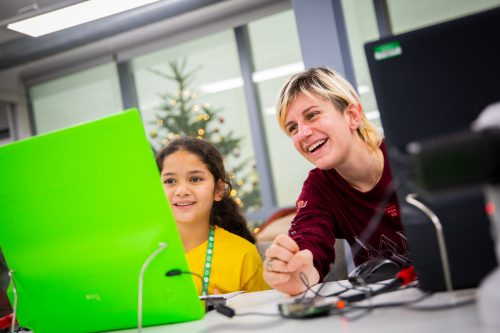
Aside from teacher-led instruction or independent exploration, another way is to learn with others in a relaxed and informal setting. If you’re a young person, then clubs like Code Club and CoderDojo are perfect. If you’re an adult, then attending a Raspberry Jam or conferences like WeAreTechWomen can provide a supportive environment.
“By being kinder to ourselves and seeing ourselves as life-long learners, it is easier to overcome insecurity and build confidence.” – Carrie Anne Philbin
A great way to approach new learning is at your own pace, and thanks to technology, we have access to online training courses with great videos, exercises, and discussion — many of these are completely free and let you connect with a community of learners as well.
How do you think educating the next generation about computing will change the makeup of the tech sector?
CAP: We’re in an exciting phase for computing education. The world has woken up to the importance of equipping our young people with the knowledge and skills for an ever increasing digital landscape. This means computer science is gaining more prominence in school curricula and giving all children the opportunity to discover the subject.
“Education can be democratising, and I expect to see the makeup of the tech sector reflect this movement in the next five to twenty years.” – Carrie Anne Philbin
Unlike physics or music, computing is still a relatively young field, so we need to do more research into what is encouraging and what isn’t, particularly when we work with young people in schools or clubs.
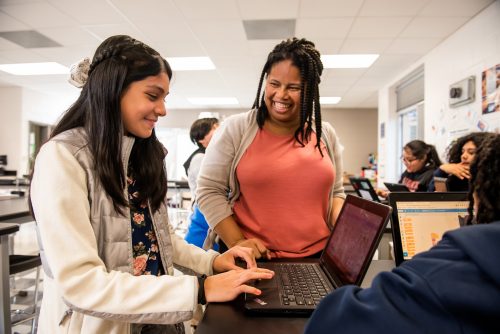
We’re still learning how to teach computing, and particularly programming, well to encourage greater diversity, so it’s great to see such a vast Gender Balance in Computing research project underway as part of the National Centre for Computing Education here in England. It’s not too late for schools in England to get involved in this project either…
What can I do today?
- If you want to start learning about coding and computing, sign up for one of our free online courses
- If you want to become a role model for the next generation, start volunteering at a Code Club in your child’s school, or at a CoderDojo in your local community
- If you’re working in a school in England and want to help us find out how to engage more girls in computing as a school subject, register your interest to participate in our Gender Balance in Computing project
- If you’re a teacher in England and interested in how to teach computing, make use of the free training and resources we provide for you through the National Centre of Computing Education

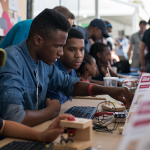

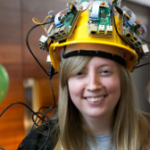

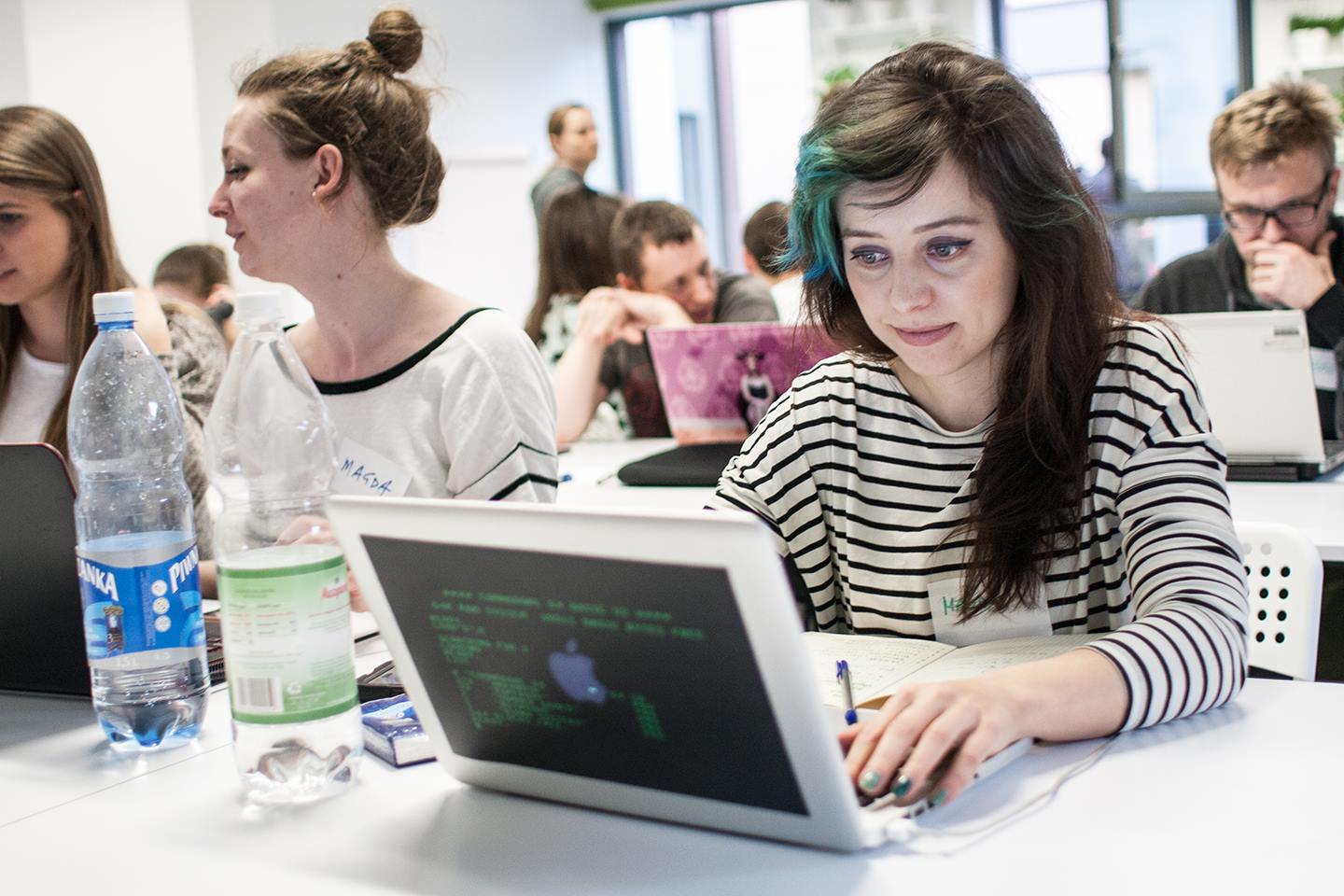
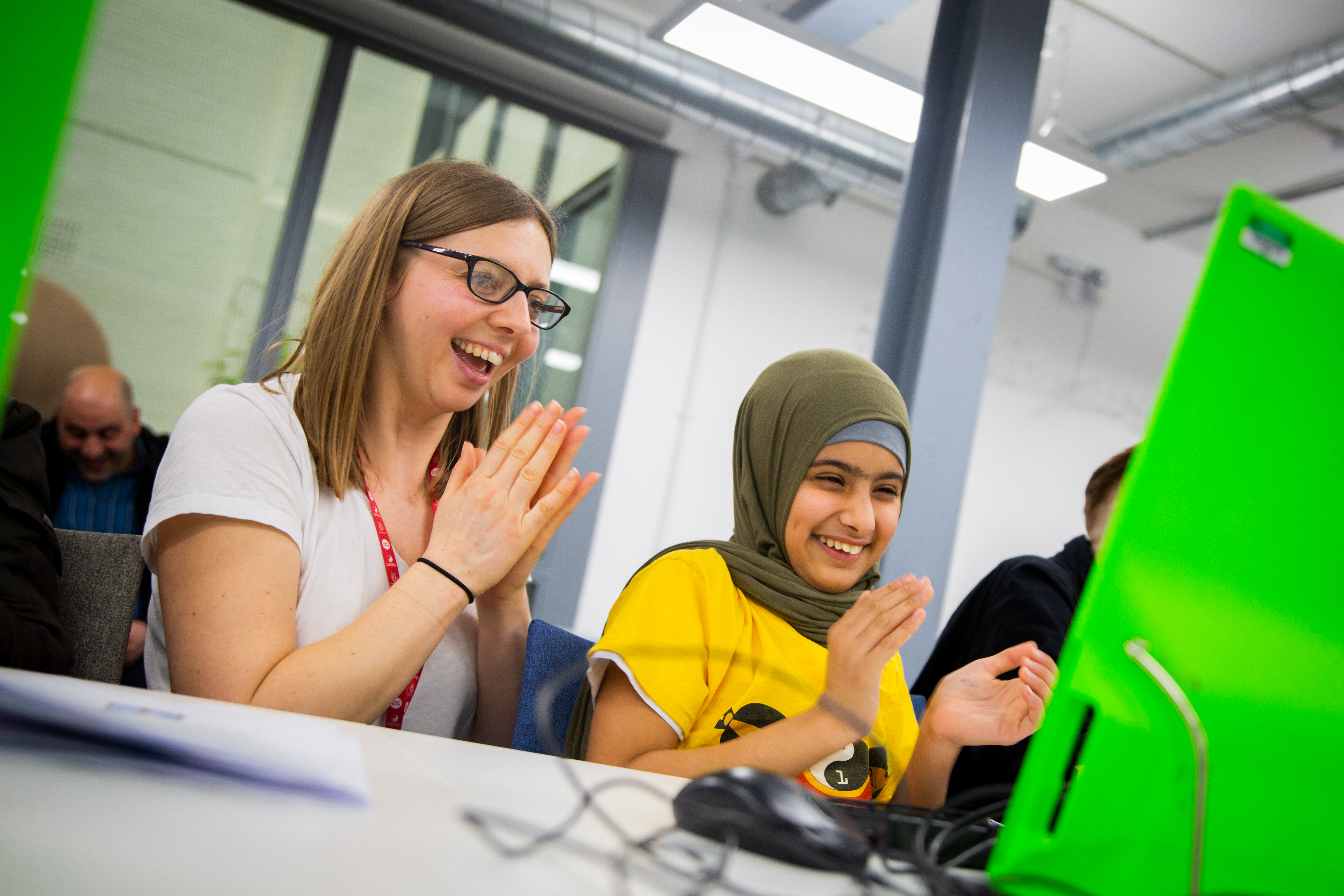


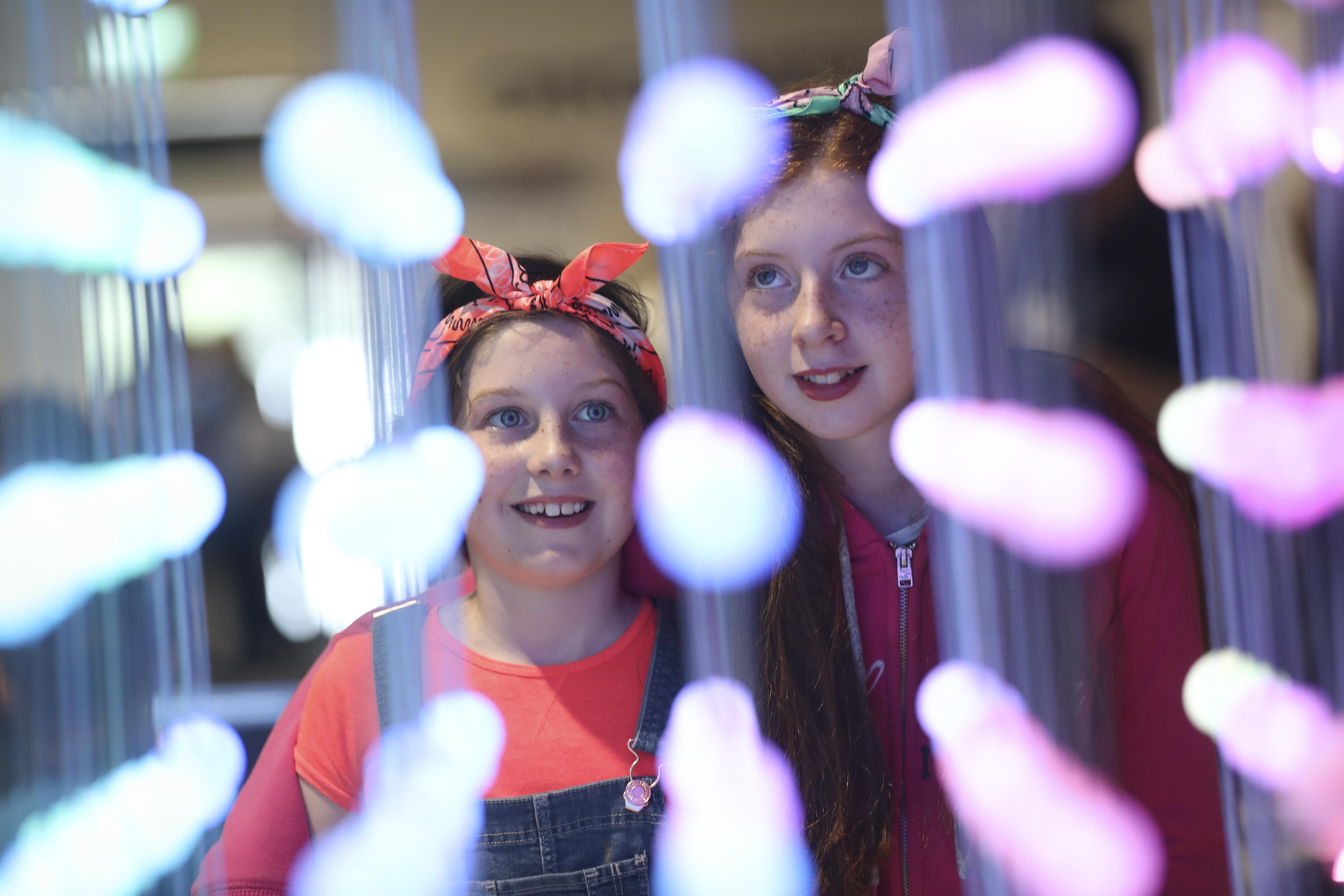
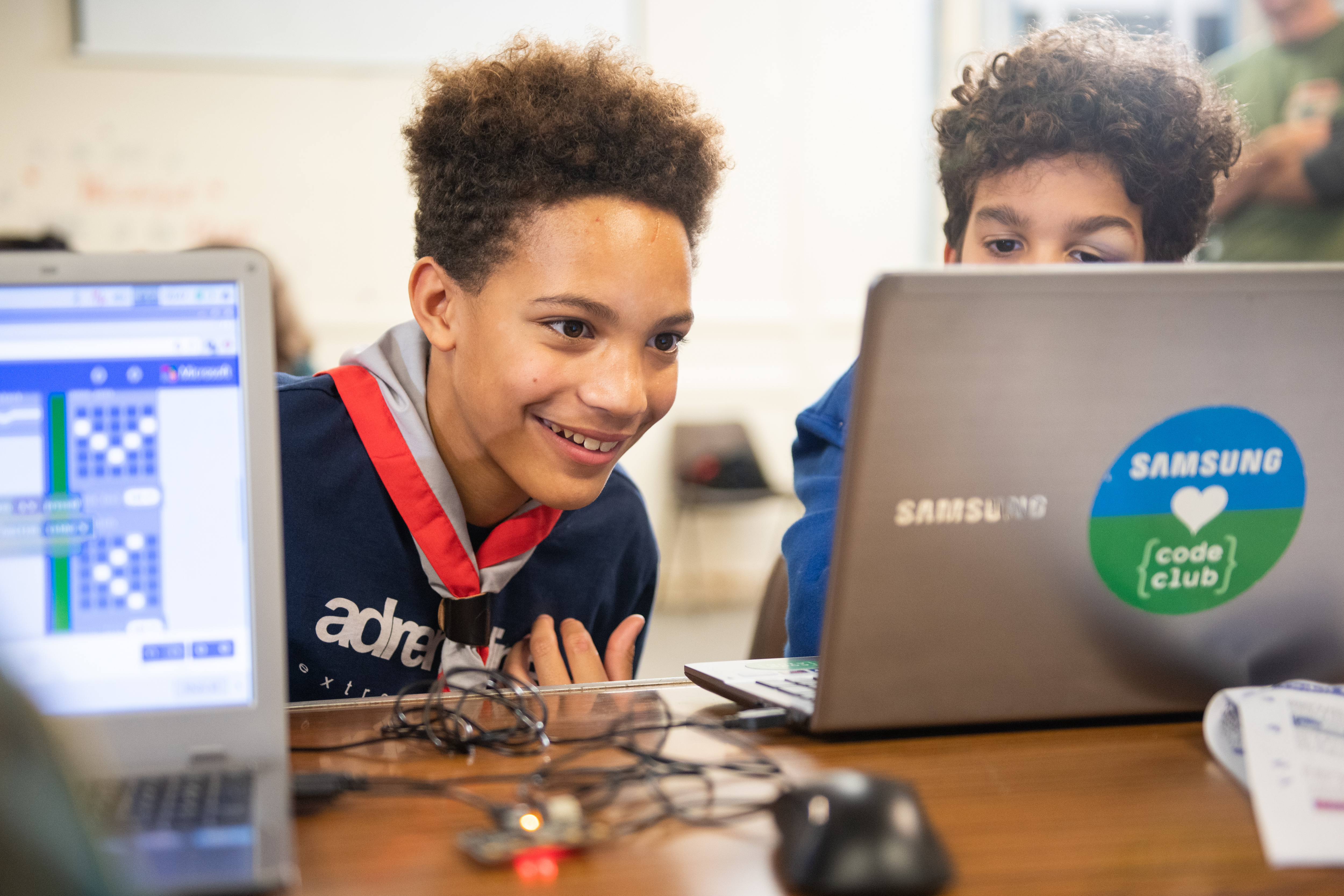
16 comments
Michal Smrž
17% is too much <- same value sentence as in article.
Also, why percentage, why not absolute numbers? You can achieve your goal by scaring/banning men out of technique.
James Carroll
My Daughter was born in 1983. I had a Commodore 64 computer in the house when she was a year old. She grew up around computers and used them as a child when almost none of her contemporaries had them. I worked in electronics and avionics and did everything I could to interest both her and her brother in what I loved doing. I discovered that children have their own interests and while my children are highly skilled with using tech they have zero interest in a job involving tech. We should encourage children to follow their dreams but we can not choose their dreams for them.
Brad
I did the same thing with both of my daughters. I love everything about computers and electronics. They are both great at using them and that is what they really enjoy – using them, not building or programming them. They are just not interested. They are both very smart with college degrees; just not in Computer Science or Engineering. Even the percentage of men in Computer Science is a small amount of the population.
Raspberry Pi Staff Liz Upton
Well quite: this is kind of the point we’ve been making with the Raspberry Pi project all along. You don’t give a kid piano lessons in the expectation that she is going to become a concert pianist: you do so in order to put them in the way of opportunity. If kids are given equal opportunity to learn and discover that they love something, that’s terrific; if societal pressures don’t tell them that a particular opportunity is not for them, that’s even better.
Eben and I have a daughter. She’s raised in a house full of computers (and a piano); probability and the vast capacity of human beings to find interests and obsessions being what they are, we expect her not to end up as a professional computer scientist, nor a professional pianist. But she has the opportunity to do so; a lot of kids don’t get that, and unfortunately, in the case of computing, more of the kids without the opportunity would appear to be girls.
Simon FD
My wife was refused access to a technical drawing O level (some decades back) because she was a girl (she was understandably furious) but I would imagine the problem nowadays is more due to the “geek” aspect?
Mr Colin J Woods
17% is outrageous, as a I’ve work with both male and female colleagues. We all bring different views and have different strengths, we are missing out big time by not encouraging a more proportionate gender split
E. van Eikenhorst
I agree there shoult be more women working in a techjob.
I do work for 40 jears as a technisian.
Harry Hardjono
You can’t teach people to want to be a maker. How many girls/boys actually want to disassemble radios to see how they work? How many programmers out there actually want to look at the source code of the programming libraries in order to recreate them?
Unless the desire to realize their very own ideas is nurtured at every step of their education, the endeavor is bound to fail.
If you are a teacher, the best thing you can do is encourage your students to code in primitive programming language and to build their own programming libraries.
Gavin McIntosh
Will all this give the impression to boys that only girls code? Will they feel second rate while all the focus is on the girls? If the same effort was put towards boys coding we would have many more computer literate people.
Or do boys don’t need encouragement? If we discourage boys from coding then the 17% will naturally go up. What message will boys get if every picture in a coding mag or on TV is only girls? Perhaps boys need encouragement to be teachers as that profession seems to have the opposite ratio?
Smith
See this link
https://www.raspberrypi.org/blog/coding-is-for-girls/
himhar
It’s refreshing to see people commenting about how you can’t force others to do things.
I am all for more women in tech if they want to. But you can’t force them. Let it happen naturally.
Andre
Not only are some tech jobs appealing mainly to boys, they are appealing only to certain groups/types of boys.
It is still quite normal to laugh at, poke fun at the “geeks” who want to enjoy tech. It is the image problem restricting the appeal to girls, not any internal culture. The industry itself, in my experience, is very welcoming to females.
From experience, I passed the RAE at 14 years old and I was an early adopter of home computers. Resulted in a lucrative career.
Alice
Thank you for the wonderful initiative. In England you say 17% is not enough. In rural communities in Kenya digital literacy is at 0%. Weather educated on not, women are willing to learn how to use smart phones, computers to access information, credit and share their stories. How can your foundation help.
Roland
What I find interesting is that when women are free to choose anything they want it tends to be not technology related.
https://www.thejournal.ie/gender-equality-countries-stem-girls-3848156-Feb2018/
Apparently living in a poorer country with less possibilities to choose from is what it takes to increase the numbers. They go into technology related work because there’s not much else to choose from.
Timothy Chiang
Hello there.
My name is Timothy Chiang. I am a translator in Taiwan. I read this article and think it is constructive. Therefore, could I translate this article into traditional Chinese? And put on a website named “vMaker” (https://vmaker.tw/). It is an essential website for Taiwanese makers. Thank you very much! By the way, I am the special translator of vMaker.
Raspberry Pi Staff Janina Ander — post author
Hi Timothy! Yes, you can translate this article if you include a link back to the original on our website. However, you cannot use the images from the article.
Thank you :)